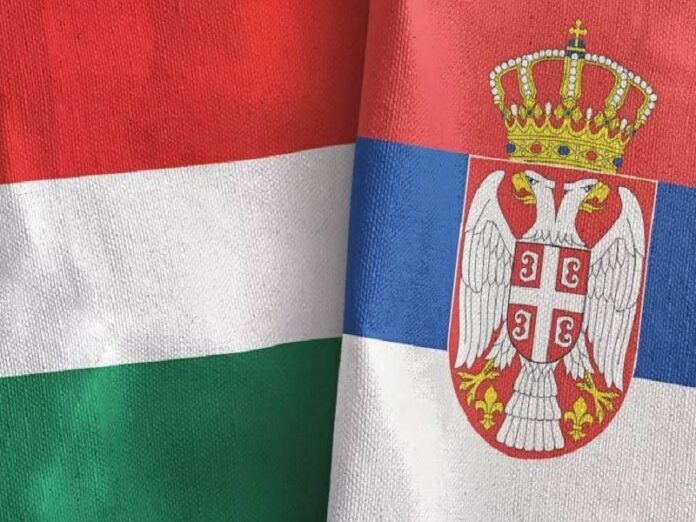Serbian President Aleksandar Vucic drew regional attention when he praised his country’s newly signed military roadmap with Hungary for “coming closer to a Hungarian-Serbian alliance.” The immediate backdrop concerns mid-March’s joint defense declaration between Croatia, Albania, and Kosovo. All three have a recent history of conflict with Serbia, Belgrade still claims what it regards as its rogue NATO-occupied Autonomous Provine of Kosovo & Metohija, and there’s a new round of uncertainty in Bosnia.
The de facto creation of a Croatian-Albanian/”Kosovar” alliance, the latest problems in Bosnia, and Vucic’s intent to create a Hungarian-Serbian alliance have therefore raised concerns that these two alliances might go to war with one another over Kosovo and/or Bosnia. Each also counts NATO members among them, Croatia and Albania in the first and Hungary in the second, thus running the risk of an intra-bloc crisis far worse than 1974’s Greek-Turkish one over Cyprus if this scenario comes to pass.
It might not, however, or at least not in the sense of these two groups of countries fighting one another. While it’s entirely possible that Croatia might exploit a crisis in Serbian-Albanian/“Kosovar” relations to make a coordinated military move in support of its co-ethnics in Bosnia or they exploit a Croatian-Bosnian crisis to make a coordinated military move against Serbia, Hungary is unlikely to intervene. That’s because it has no pressing national security interests at stake to justify the incalculable costs.
Prime Minister Viktor Orban is the consummate pragmatist who prioritizes his conception of national interests as he sincerely understands them to be. The worst-case scenario that he might expect from another regional conflict over Kosovo and/or Bosnia is an influx of (mostly Serbian) refugees to Hungary, the total number of whom would likely be much less than during the height of 2015’s Migrant Crisis and which his government has contingency plans in place to manage. That wouldn’t justify going to war.
The absolute most that Hungary might do in that situation is provide whatever military aid it could muster from its stockpiles to Serbia, but even that can’t be taken for granted since Orban might worry that doing so – at least right away – could disqualify him as a mediator. In any case, de facto defecting from NATO by waging war against neighboring member Croatia in support of Serbia is completely off the table due to the cascading consequences that this would entail, including a possible NATO invasion.
Vucic knows this so his quip about a “Hungarian-Serbian alliance” must have been meant for public consumption at home and in the region with the respective intent of falsely reassuring his people that Hungary will fight alongside them if there’s a regional war while unsettling the others’ by making them worry that their governments (Croatia, Albania, and Kosovo) might soon be responsible for provoking this. At the elite level, however, no policymaker will likely fall for his perception management spectacle.
His words will accordingly have no influence over the course of regional events unless in the far-fetched scenario that Hungary formally enters into a mutual defense pact with Serbia that stipulates sending equipment and/or troops if either is attacked. There’s no indication that Orban is considering this though since it would greatly threaten Hungary’s national interests as was explained so observers shouldn’t give much weight to talk of a Hungarian-Serbian alliance or take it too seriously if it ever enters into being.







